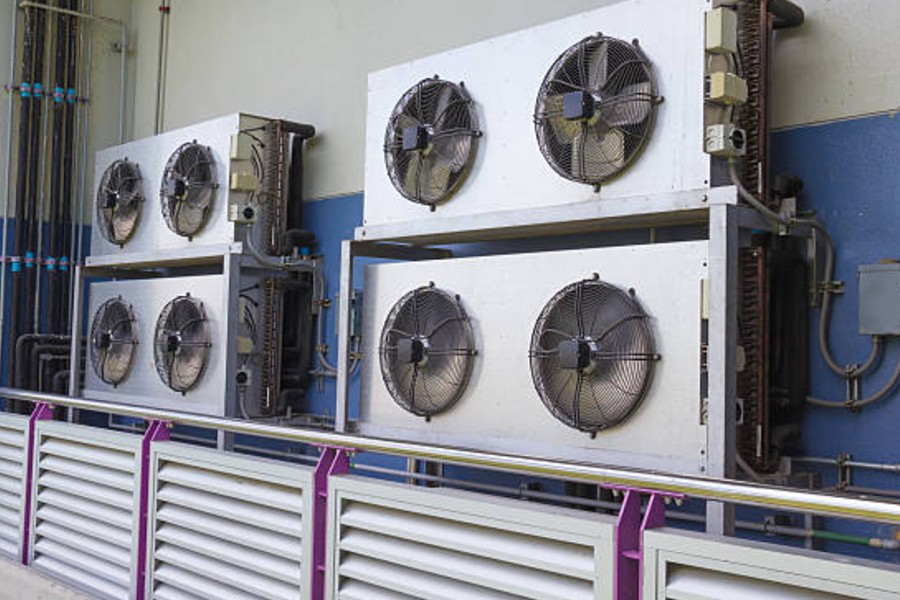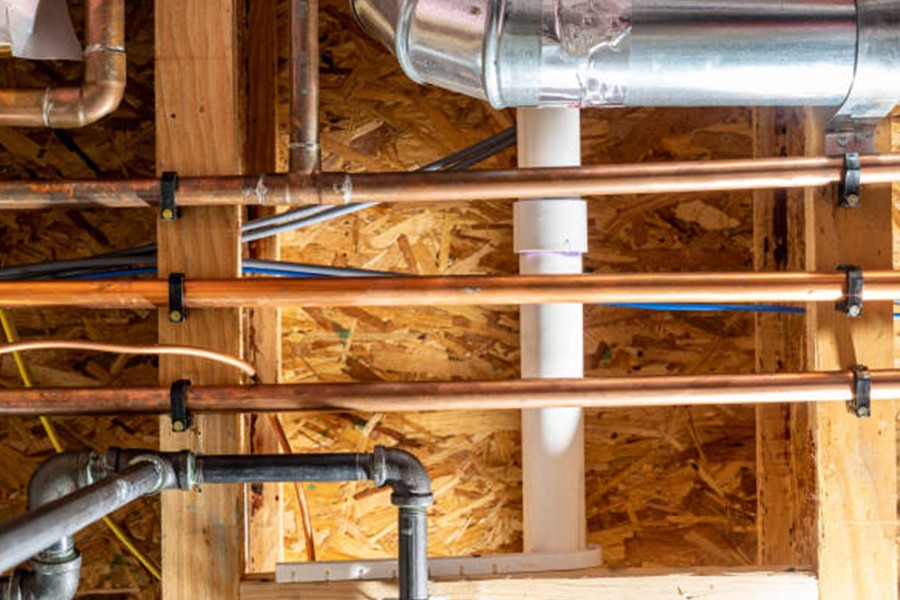
Heat pumps have become a game-changer in the world of energy-efficient home heating and cooling. Unlike traditional HVAC systems, heat pumps provide a sustainable solution for maintaining indoor comfort while keeping energy costs low.
Whether you’re upgrading your current system or installing a new heat pump, understanding how heat pump technology reduces energy expenses can help you make informed decisions.
Unlike traditional HVAC systems, heat pumps provide a sustainable solution for maintaining indoor comfort while keeping energy costs low. Whether you’re upgrading your current system or installing a new heat pump, understanding how heat pump technology reduces energy expenses can help you make informed decisions.
How Heat Pumps Work to Save Energy
The core function of a heat pump is to transfer heat rather than generate it. This process consumes significantly less energy compared to conventional systems like furnaces or boilers. By moving heat from one area to another—extracting heat from the outside air during winter or removing indoor heat during summer—heat pumps efficiently maintain comfortable indoor temperatures year-round.
Advanced heat pump systems, such as air source and electric heat pumps, use cutting-edge technology to optimize energy usage. These systems operate at higher efficiency levels, providing reliable performance in various climates.
Benefits of Heat Pump Technology
Heat pumps are known for their ability to reduce energy consumption and lower monthly utility bills. Some of the most notable benefits include:
- Energy Efficiency: Heat pumps use electricity to transfer heat, making them far more efficient than fossil-fuel-based systems.
- Dual Functionality: Heat pumps provide both heating and cooling, eliminating the need for separate systems.
- Reduced Carbon Footprint: By using renewable energy sources, heat pumps contribute to a more sustainable environment.
Choosing the Right Heat Pump for Your Home
Selecting the right heat pump is essential for maximizing energy savings. Here are a few factors to consider:
- Climate: Air source heat pumps work efficiently in moderate climates, while cold climate models are designed for areas with extreme winters.
- System Size: A properly sized heat pump ensures optimal performance and energy efficiency. Oversized systems can lead to short cycling, while undersized systems may struggle to meet your heating and cooling needs.
- Efficiency Ratings: Look for heat pumps with high Seasonal Energy Efficiency Ratio (SEER) and Heating Seasonal Performance Factor (HSPF) ratings. These indicators measure a system’s cooling and heating efficiency, respectively.
The Role of Regular Maintenance in Cost Savings
Routine maintenance is crucial for ensuring your heat pump operates efficiently and lasts longer. Neglecting maintenance tasks can lead to reduced performance and higher energy bills. Key maintenance steps include:
- Cleaning or Replacing Filters: Dirty filters restrict airflow, forcing the system to work harder.
- Inspecting Coils and Fans: Dust and debris buildup can reduce the efficiency of the evaporator and condenser coils.
- Clearing Obstructions Around the Outdoor Unit: Keeping the area around your heat pump clear of debris improves airflow and system efficiency.
Scheduling annual maintenance checks with a professional HVAC company can further optimize system performance and energy savings.
Smart Thermostats and Heat Pumps
Integrating a smart thermostat with your heat pump can enhance its energy efficiency. Smart thermostats allow you to program heating and cooling schedules, monitor energy usage, and adjust settings remotely. These devices learn your preferences over time, optimizing temperature control to minimize energy consumption.
Insulation and Air Sealing: A Critical Duo
Even the most advanced heat pump cannot perform efficiently in a poorly insulated home. Heat loss through walls, windows, and ceilings can compromise your system’s effectiveness, leading to higher energy costs. To maximize your heat pump’s efficiency, consider:
- Improving Home Insulation: Properly insulating walls, attics, and floors minimizes heat transfer.
- Sealing Air Leaks: Use weatherstripping and caulk to seal gaps around doors, windows, and other areas prone to drafts.
These measures help maintain consistent indoor temperatures and reduce the workload on your heat pump, resulting in lower energy bills.
Heat Pump Features That Enhance Efficiency
Modern heat pumps come equipped with features designed to maximize efficiency and minimize energy use:
- Variable-Speed Compressors: These compressors adjust their speed based on the heating or cooling demand, avoiding energy waste.
- Inverter Technology: By maintaining a consistent temperature, inverter-driven systems eliminate the need for frequent on/off cycling.
- Defrost Control: Automatic defrost cycles prevent ice buildup on outdoor coils, ensuring smooth operation during winter months.
Comparing Heat Pumps to Traditional HVAC Systems
Heat pumps outperform traditional HVAC systems in energy efficiency and environmental impact. While furnaces and boilers rely on burning fossil fuels, heat pumps use electricity to transfer heat. This fundamental difference results in:
- Lower Operating Costs: Heat pumps use less energy to produce the same amount of heating or cooling.
- Environmental Benefits: By reducing reliance on fossil fuels, heat pumps significantly decrease greenhouse gas emissions.
Upgrading to an Electric Heat Pump
If your current HVAC system is outdated, upgrading to an electric heat pump can bring immediate energy savings. Electric heat pumps are particularly effective in areas with renewable energy sources, as they can further reduce your home’s carbon footprint. For homeowners in Canada, Foundry Heat Pumps offers reliable options tailored to your specific needs.
DIY Tips for Energy Efficiency
In addition to regular maintenance and professional servicing, there are several steps homeowners can take to improve their heat pump’s efficiency:
- Optimize Thermostat Settings: Set the thermostat to an energy-efficient temperature when you’re away from home.
- Keep Vents Clear: Ensure that furniture or curtains do not block air vents, allowing for proper airflow.
- Use Ceiling Fans: Ceiling fans can help circulate warm or cool air, reducing the strain on your heat pump.
The Future of Heat Pump Technology
As technology advances, heat pumps are becoming even more efficient and accessible. Innovations like dual-fuel systems, which combine heat pumps with backup gas furnaces, offer greater flexibility for homeowners in colder climates. Additionally, smart home integration and renewable energy compatibility are paving the way for heat pumps to become a cornerstone of sustainable living.
Conclusion
Heat pump technology is revolutionizing the way we heat and cool our homes, offering an energy-efficient alternative to traditional systems. By understanding how heat pumps work, choosing the right system, and maintaining it properly, homeowners can enjoy significant energy savings and reduced environmental impact. Foundry Heat Pumps remains a trusted partner for those looking to invest in modern, efficient heating and cooling solutions. With the right approach, your heat pump can provide comfort, savings, and sustainability for years to come.
Latest Posts
- How Much Does It Cost To Change Tire Rims?
- The Potential Of IT Support Outsourcing: A Revolution For Contemporary Companies
- Why Businesses Should Invest In A Virtual Office Program
- Why Royal Alloy Scooters Are Redefining The Scooter Experience
- Sponsored Love: Senior Moving Companies In Bradenton You Can Trust
Become a Harlem Insider!
By submitting this form, you are consenting to receive marketing emails from: . You can revoke your consent to receive emails at any time by using the SafeUnsubscribe® link, found at the bottom of every email. Emails are serviced by Constant Contact








